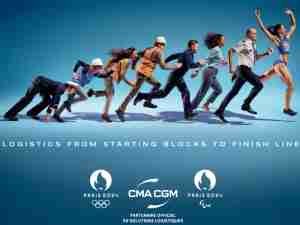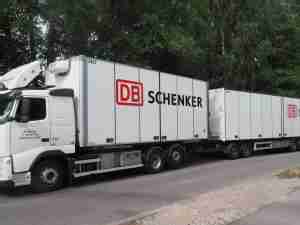TAPA calls for more law enforcement agencies and insurers to share data on cargo crime
posted by AJOT | May 16 2016 at 09:48 AM | Logistics
Increased sharing of cargo crime data by law enforcement agencies will enable manufacturers and logistics service providers to further protect high value/theft attractive goods in supply chains and relieve the pressure on police forces that have to deal with the growing number of incidents in the Europe, Middle East and Africa (EMEA) region, says the Transported Asset Protection Association (TAPA).
Thorsten Neumann, Chairman of TAPA EMEA, said: “Our members are able to operate more resilient supply chains because they can use the intelligence we already receive from some police forces to avoid known ‘hotspots’ for cargo crimes and to protect their facilities and vehicles against the types of attacks we know are taking place several times a day in Europe alone. We already receive data from law enforcement agencies in the United Kingdom, Netherlands, Germany and Sweden and now we have a commitment from French police to also share data with our Incident Information Service (IIS). However, we need much more crime intelligence from across the EMEA region if industry is to help the police tackle this issue. Similarly, we are asking more insurers to help us gain a better understanding of the true level of cargo crime, which remains massively under-reported.”
His comments come as cargo crimes reported to TAPA’s IIS in the Europe, Middle East and Africa (EMEA) region reached a three-year high in Q1 2016, with an average of nearly five incidents every day culminating in millions of euros of losses for manufacturers and logistics service providers.
Overall, 444 incidents were reported to TAPA’s IIS in the region in the first three months of 2016, a 115% increase year-on-year. This compared to 216 and 206 freight thefts recorded by the Association in the first quarters of 2014 and 2015 respectively. Thefts of products from supply chains were reported in 19 countries in EMEA in Q1 2016 and included 29 major losses with a value of more than €100,000. The total loss for the 24.1% of incidents reporting a value was €7,979,623 and this produced an average loss of €74,547.
The highest single loss reported over the three months was the theft of eight pallets of perfume valued at €600,000 from a trailer in Lastrup, Lower Saxony, in Germany.
TAPA’s incident intelligence data shows that 86.2% of cargo thefts in the three months occurred in four countries. 131 new incidents were reported in the United Kingdom, 126 in the Netherlands, 86 in Germany and 40 in Sweden, with all four countries recording an increase year-on-year as a result of increased sharing of incident data by police authorities. France, South Africa and Italy recorded a further total of 32 cargo crimes. The UK also recorded most of the major cargo crimes, 13 in total, followed by Germany with seven.
Continuing a trend reported in TAPA’s IIS Annual Report for 2015, data for the first quarter of this year shows the wide variety of products being targeted by cargo thieves, with high volumes of lower value goods proving to be just as attractive to criminals as high value products. In the 16 IIS product categories reporting losses in Q1, Food & Drink recorded the highest number of incidents – as it did for the whole of 2015 – with 48 losses or 10.8% of the 444 Q1 crimes. There were 35 recorded cases of thefts of Clothing & Footwear, 25 losses of Computers/Laptops, 24 incidents involving Furniture/Household Appliances, and 20 reported crimes in both the Cosmetics & Hygiene and Tools/Building Materials categories.
Other products stolen from supply chains by cargo thieves in Q1 included Tobacco, Tyres, Toys & Games, Bicycles, Metal, Sports Equipment, Pharmaceuticals, Car Parts, Cash and Phones.
Cargo thefts involving trucks continued to dominate recorded crimes in the quarter with 56.3% of losses or 250 incidents involving Theft from Vehicle. There were a further 53 cases of Theft from Trailer and 36 reports of Theft of Vehicle, Theft from Facility was reported on 25 occasions in Q1 2016 and there were also 12 Hijacking crimes. Other types of incident included Theft of Trailer, Theft from Container, Fraud and Robbery.
The lack of secure parking locations, particularly on major trade routes across Europe, was again evident. The majority of freight thefts took place when vehicles were stopped at motorway services, in lay-bys along main highways, or on industrial estates while drivers took their required rest breaks. Losses involving unsecured parking locations accounted for 55.7% or 247 of the incidents reported to TAPA in the EMEA region over the three-month period to 31 March.
Origin Facility was the location of 45 crimes and incidents were also reported at Maritime, Railway and Road Transportation Facilities. Violence and Threat with Violence was the modus operandi used by criminals in 19 or 4.3% of cases.
Thorsten Neumann added: “We do not know the full extent of cargo crime in EMEA nor globally. We do know, however, that we are barely scratching the surface of the number of incidents we believe are happening in some major countries in our region. The best way to help fight cargo crime is through public private partnership where we all contribute to making supply chains safer. That is the fastest route to putting cargo criminals out of business – and that is the message we will continue to communicate in our discussions with INTERPOL, Europol, the European Commission and insurance organisations. We are all in this together.”









